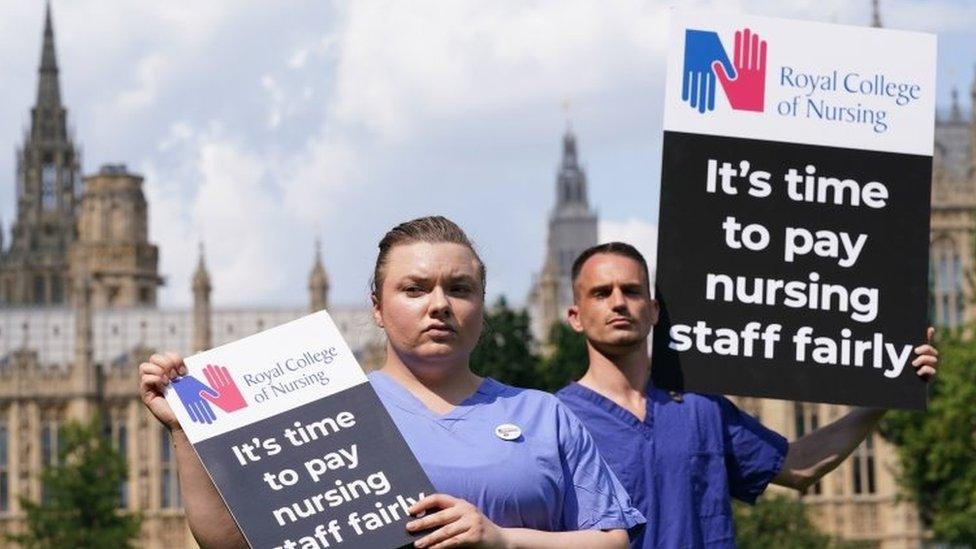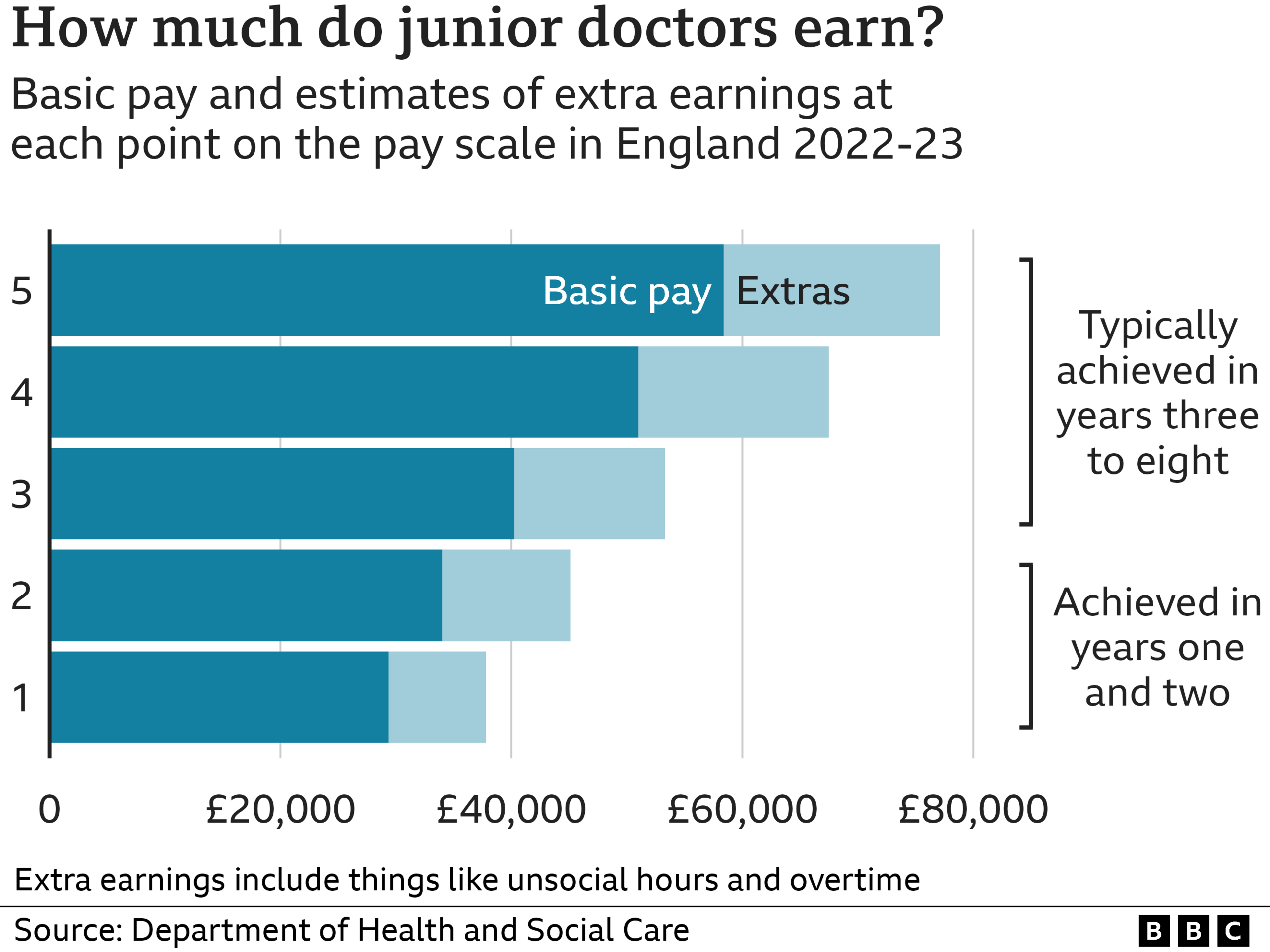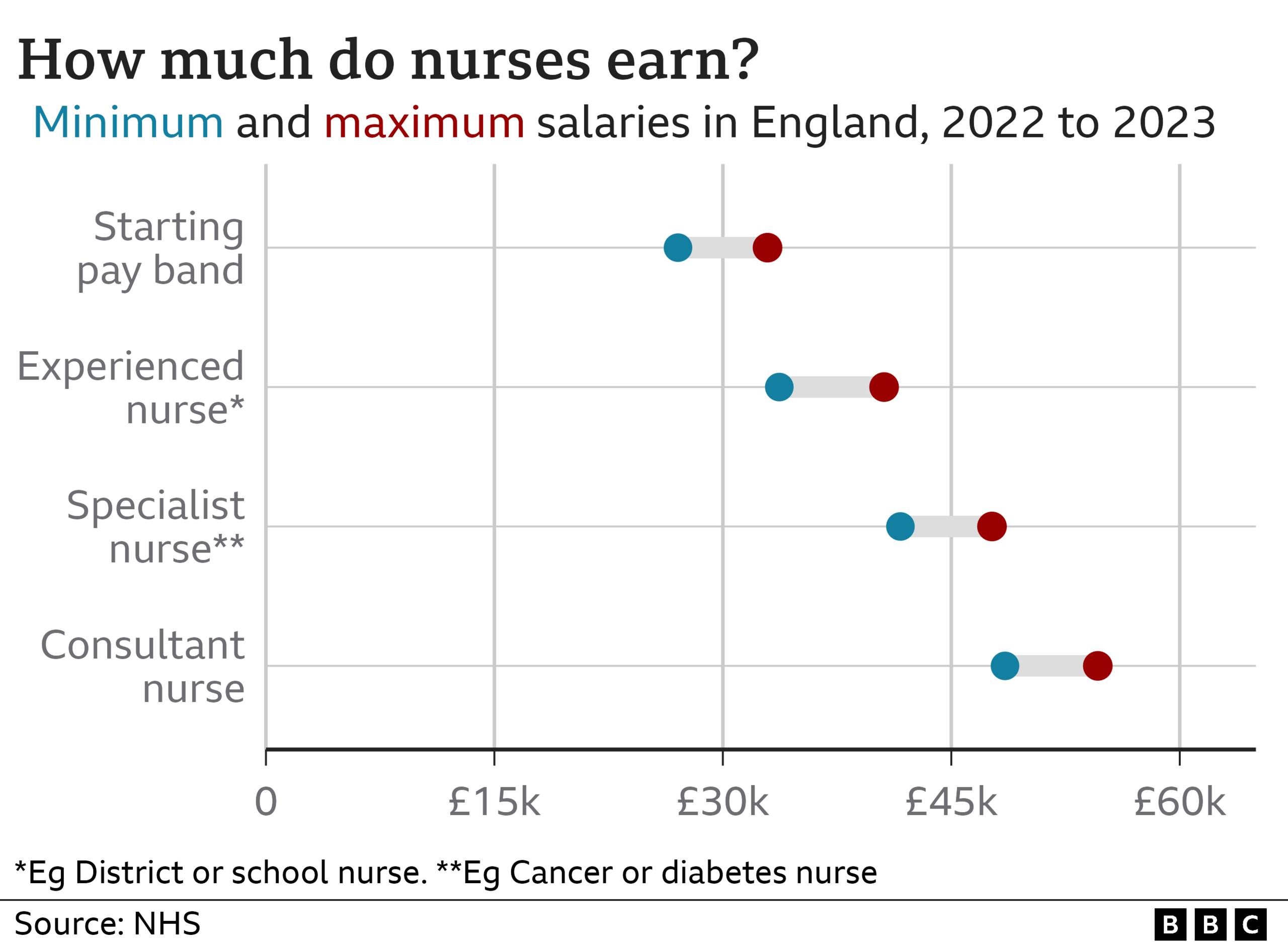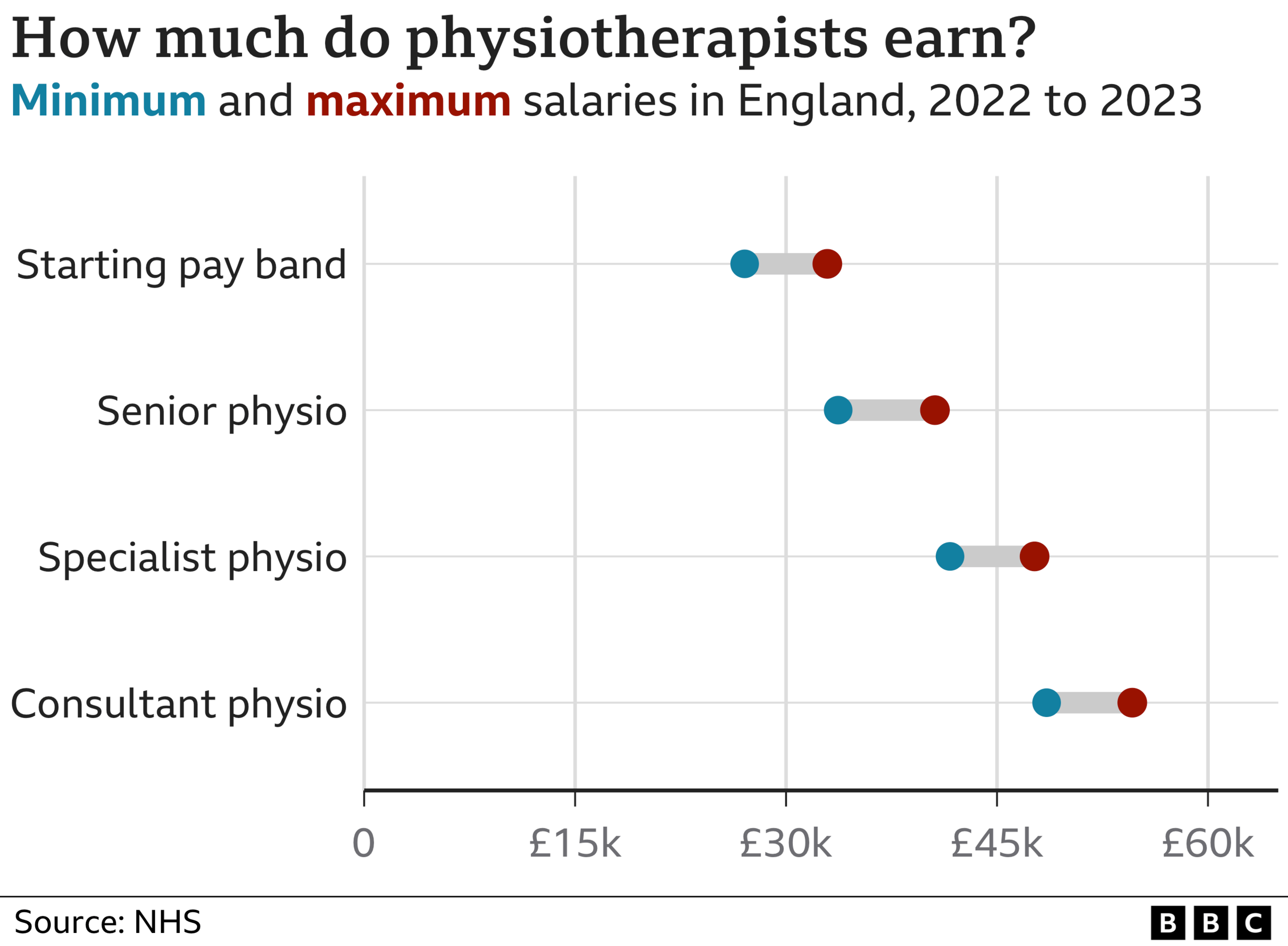NHS strikes: What is the new NHS pay offer?
- Published

The government has reached a pay settlement with a million health workers after a majority of unions representing NHS staff backed the deal.
Under the deal, which was first proposed in March, staff will get a 5% pay rise plus a one-off sum of at least £1,655.
But the Royal College of Nursing and two other unions have threatened more strikes.
Which NHS staff have been striking and what pay rises do they want?
Nurses
Members of the Royal College of Nursing (RCN) union in England rejected the government's current pay offer and held a 24-hour strike which ended at midnight on 1 May
The strike was originally scheduled to be 48 hours long, but the High Court ruled that would be unlawful because the existing RCN strike mandate expired after 24 hours
In March the government offered a 5% pay rise for 2023-24 and a one-off payment of at least £1,655 to top up last year's salary, depending on staff grades
The offer covers all NHS staff except doctors
While 11 NHS unions accepted the pay deal on 2 May, the RCN rejected it again and warned it will continue to pursue strike action. To do so, it would need to ballot its members again to get another strike mandate
Unite also failed to back the deal - it currently has a strike mandate for local strikes in some ambulance services and a few hospitals
In Scotland, members of RCN and the Royal College of Midwives voted to accept a pay offer of 6.5% for this year from the Scottish government
That is on top of a 7.5% pay rise imposed for 2022-23 - meaning staff will see pay increase by 13-14% over two years
Health unions in Wales and Northern Ireland are still in negotiations with their governments
Ambulance staff
About 2,000 Unite members who are paramedics, call handlers and other staff working for ambulance trusts are walking out on 1 and 2 May in several parts of England
Ambulance workers in England have been offered the same deal as nurses and midwives - 5% from April and a one-off payment of at least £1,655
GMB and Unison members have accepted the pay offer, but members of Unite have voted to reject it
Strikes which had been scheduled in March by Unison, Unite and the GMB were called off while pay talks took place
Junior doctors
Junior doctors in England staged strikes between 13 and 15 March and a four-day walkout which ended at 07:00 BST on 15 April
The British Medical Association (BMA) said junior doctor roles have seen pay cut by 26% since 2008 once inflation is taken into account. It wants a 35% pay rise
The government has said a 35% pay increase is "unreasonable in the current economic context"
What have strikes meant for patients?
Nurses
For the first time, the 24-hour walkout from 20:00 BST on 30 April to 20:00 on 1 May involved NHS nurses across all departments.
However every hospital was guaranteed a minimum level of cover for intensive care and trauma as the RCN has to abide by trade union rules to ensure life-preserving care can be provided during a walkout.
In the past, NHS advice, external has been to dial 999 in an emergency and attend hospital appointments on strike days unless told otherwise.
Ambulance staff
The advice remains to call 999 in an emergency.
The most life-threatening situations - such as cardiac arrest - will be sent an ambulance
Serious conditions not obviously life-threatening might not be immediately attended
Less urgent calls - such as women in late-stage labour - will not be prioritised
Those who fall, or suffer other non-life-threatening injuries, are unlikely to receive 999 care.
Junior doctors
More than 196,000 hospital appointments had to be cancelled because of the strike in April.
The previous strike in March disrupted more than 175,000 appointments and procedures.
NHS advice, external was to dial 999 in an emergency and attend hospital appointments on strike days unless told otherwise.
Emergency care will remain available
Newborns and people needing critical or trauma care will be prioritised
Anyone needing urgent care should dial 111
GP services will not be directly affected, so patients should attend GP appointments
Some hospital dentists will also be on strike
How much are NHS workers paid?
Junior doctors
The starting salary for a junior doctor in England is £29,000. After finishing their second year of training they earn more than £40,000 on average.
Doctors at this level earned about £14,000 in extra payments - for things like unsociable hours - in the year to September 2022, according to NHS Digital., external
By the end of their training, which can last 15 years for some, basic pay is more than £53,000.

Nurses
The starting salary for a nurse is England is just over £27,000 a year.
A nurse with four years' experience could expect to earn close to £33,000. On average, nurses took home £4,200 in extra payments in the year to September 2022.
The most senior nurse consultants can earn up to nearly £55,000.

Ambulance workers
Ambulance workers include paramedics, emergency medical technicians, care assistants and call handlers.
The different roles straddle a number of pay scales, and staff can also receive additional payments for overtime and shift working.
For example, paramedics in England typically start on Band 5, earning from £27,055 in 2022/2023.
After two years they can move to Band 6, which starts at £33,706.
According to the Nuffield Trust's analysis of NHS digital figures, external, the average NHS salary of a paramedic in England in the year to March 2022 (including those working part-time) was £46,643. That includes £13,854 from extra payments.
Emergency medical technicians typically start at Band 4, earning from £23,949.
Physios
Starting salaries for physios are just above £27,000 in England.
The most experienced can earn more than twice that in the NHS. Many combine NHS and private work.
In the year to September 2022, physios received nearly £3,000 in extra payments.

Correction 2 May: An earlier version of this story incorrectly described emergency medical technicians as "support staff". This has been corrected and salary details updated.
